Nationals’ leader David Littleproud has singled out nuclear energy as a key reason for his party’s spectacular split from the Liberals, as both parties seek to rebuild following the Coalition’s devastating election loss.
Speaking to the media on Tuesday, Littleproud said:
our party room has got to a position where we will not be re-entering a Coalition agreement with the Liberal Party […] Those positions that we couldn’t get comfort around [include] nuclear being a part of an energy grid into the future.
The junior partner had long held strong sway over the Coalition’s climate and energy stance, including the plan to build nuclear reactors at seven sites across Australia using taxpayer funds.
After public sentiment appeared to go against nuclear power during the election, the Nationals had reportedly been weighing up changes to the policy. It would have involved walking away from the plan to build reactors and instead lifting a federal ban on nuclear power.
But some quarters of the Nationals remained deeply wedded to the original nuclear plan. Meanwhile, Nationals senator Matt Canavan had called for the net-zero emissions target to be scrapped, and Nationals senator Bridget McKenzie insisted renewable energy was harming regional communities.
Now, with the Nationals unshackled from the binds of the Coalition agreement, the future of its energy policy will be keenly watched.
Danny Casey/AAP
A graceful way out of nuclear
Littleproud on Tuesday did not confirm where exactly he expected the Nationals to land on energy policy. But he rejected suggestions his party was unwise to stick with the nuclear policy after the Coalition’s poor election result, saying public opinion had been swayed by a “scare campaign”.
Even if the Coalition had won the election, however, the policy was running out of time.
CSIRO analysis showed, contrary to the Coalition’s claims, a nuclear program that began this year was unlikely to deliver power by 2037. But up to 90% of coal-fired power stations in the national electricity market are projected to retire before 2035, and the entire fleet is due to shut down before 2040.
Now, the earliest possible start date for nuclear is after the 2028 election. This means plugging nuclear plants into the grid as coal-fired power stations retire becomes virtually impossible.
This very impossibility provided the National Party with a graceful way out of the policy. It could have regretfully accepted the moment had passed.
With nuclear out of the picture, and coal-fired power almost certain to be phased out, that would have left two choices for the Coalition: a grid dominated by gas, or one dominated by renewables.
However, expanding gas supply frequently requires the controversial process of fracking, which is deservedly unpopular in many regions where it’s undertaken.
What’s more, gas is an expensive energy source which can only be a marginal add-on in the electricity mix, used alongside batteries to secure the system during peak times.
Logically, that would have left renewable energy as the only feasible energy policy option for the Nationals – but it wasn’t to be.
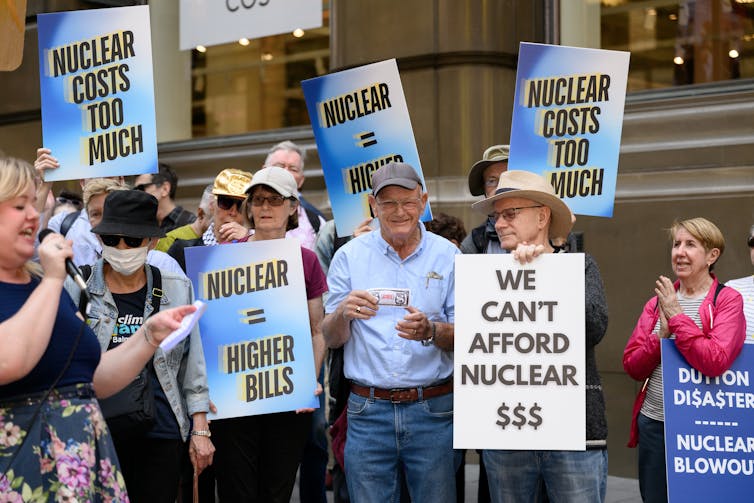
Steven Markham/AAP
‘Technology agnostic’?
Littleproud claims the party is technology agnostic about energy policy. In practice, that would mean choosing the technology that can reduce emissions most rapidly and cheaply, rather than being bound by ideology or political expediency.
In principle, this approach is the right one. Many energy sources can reduce carbon emissions, including solar and wind (backed up by energy storage), nuclear, hydro-electricity, and even gas and coal if emissions can be captured and stored.
But the Nationals’ claim to agnosticism is not reflected in its actual policies which, in recent years, have been characterised by dogmatic faith in nuclear and so-called “clean” coal, and an equally dogmatic rejection of solar, wind and battery storage.
The Nationals’ hostility to renewables may in part be driven by pressure from anti-renewable activist groups.
The Institute of Public Affairs, for example, has sought to promote rural opposition to renewables and emissions reduction and focused its efforts on Nationals-held seats
And the now-defunct Waubra Foundation, named after the small town in northwest Victoria, opposed wind farms and claimed they caused health problems. The group was created by an oil and gas executive with no apparent links to the town.
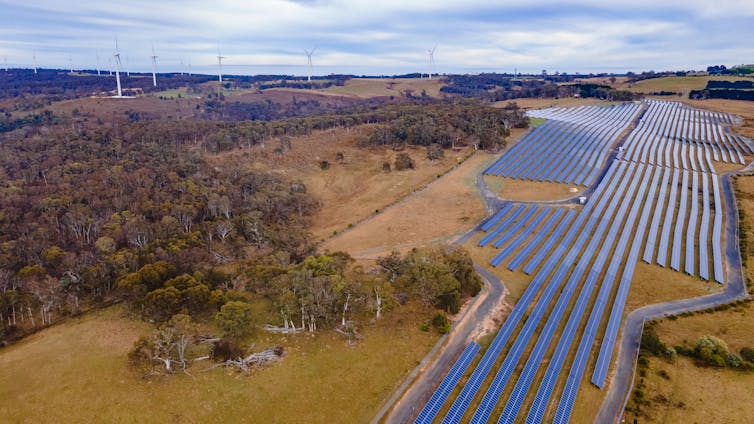
Steve Tritten/Shutterstock
What about net-zero?
Elements of the Nationals had been calling for the Coalition to abandon support for Australia’s target of net-zero emissions by 2050.
This would mostly have been a symbolic measure, since the target does not require, or prohibit, any particular policy in the short run. It may, however, have exposed Australia’s agricultural exports to tariffs on carbon-intensive goods.
The move would have been disastrous for the Liberals’ chances of regaining urban seats, and for investment in renewable energy. So it was never likely to be accepted as part of a Coalition agreement.
The Nationals could have chosen to accept the target in return for concessions elsewhere. Or it might have sought an agreement with the Liberals where the parties agreed to differ.
It’s not clear what role, if any, net-zero played in the dissolution of the Coalition agreement. But in the end, the Nationals decided to walk away from it altogether.
Renewables can be good for the bush
Nationals Senate leader Bridget McKenzie last week said her party was concerned that renewable energy targets are “impacting rural and regional communities”. The party has long voiced concern about the impact of large-scale wind and solar projects in the bush.
However, many farmers and other rural landowners benefit financially from hosting solar and wind farms, which, in many cases, do not prevent the land from also being used for farming.
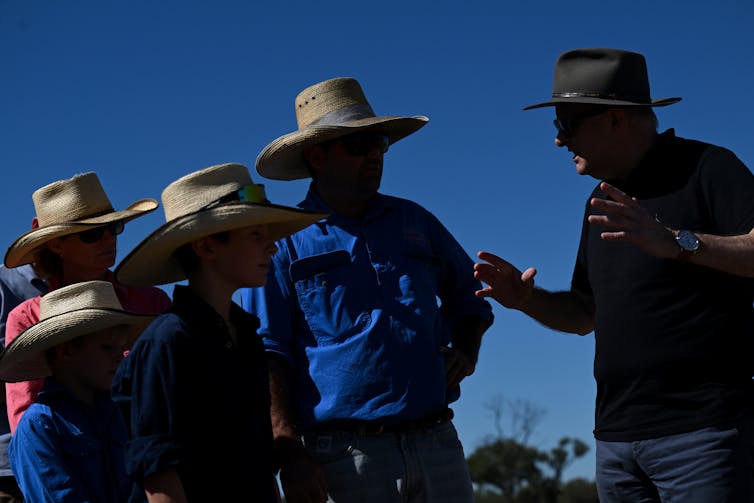
Lukas Coch/AAP
Concerns that wind farms and solar panels might slash the value of neighbouring properties have been shown to be ill-founded.
And importantly, the increasing frequency of extreme climate events is already a challenge to Australia’s agriculture sector and will become more difficult. Tackling the problem is in regional Australia’s interests.
The Nationals’ hostility to renewable energy comes at a cost to rural and regional Australians. But Littleproud clearly could not balance competing views within the Nationals on energy policy while inking a deal with the Liberals. Instead, the party will now go it alone.
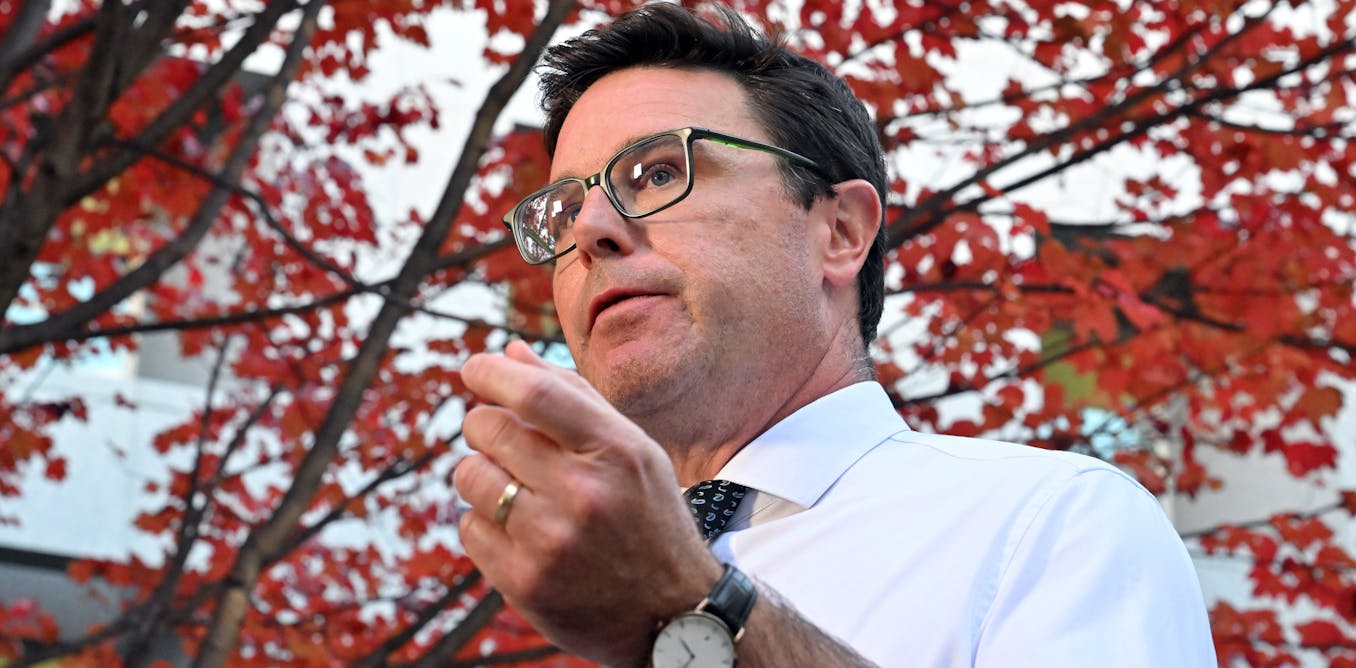
The post “David Littleproud cites nuclear energy disagreement as major factor in Coalition split” by John Quiggin, Professor, School of Economics, The University of Queensland was published on 05/20/2025 by theconversation.com











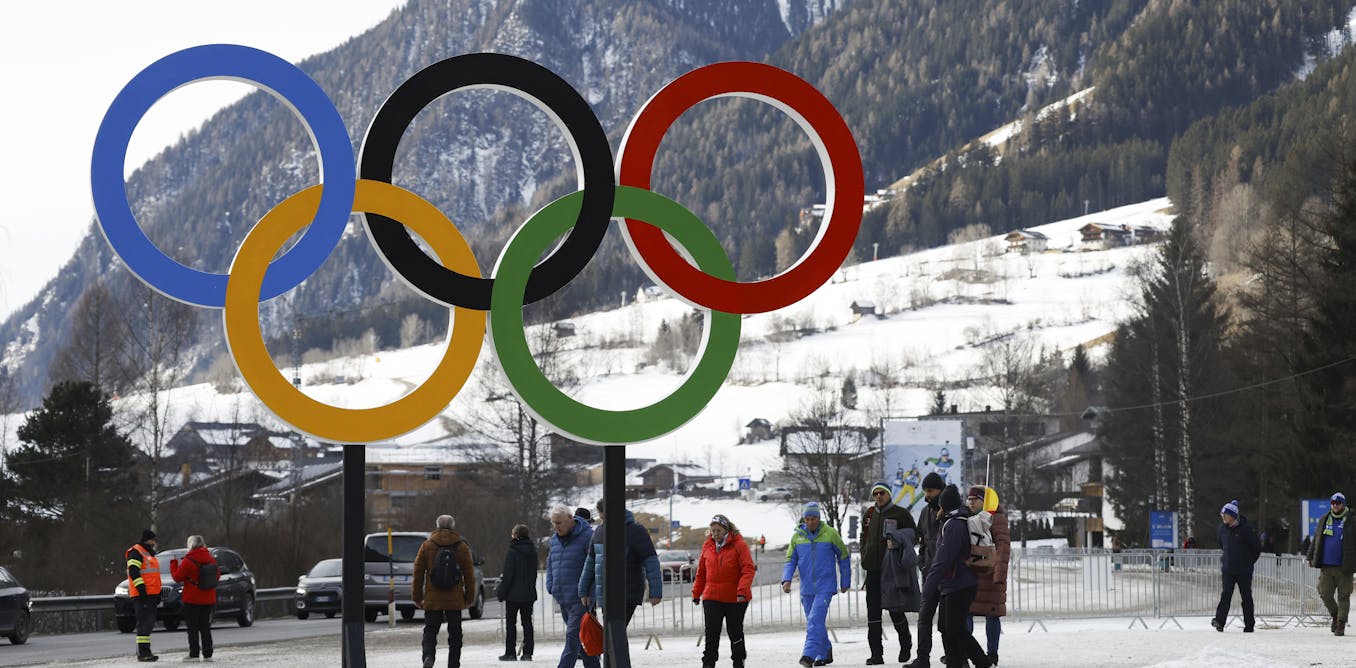

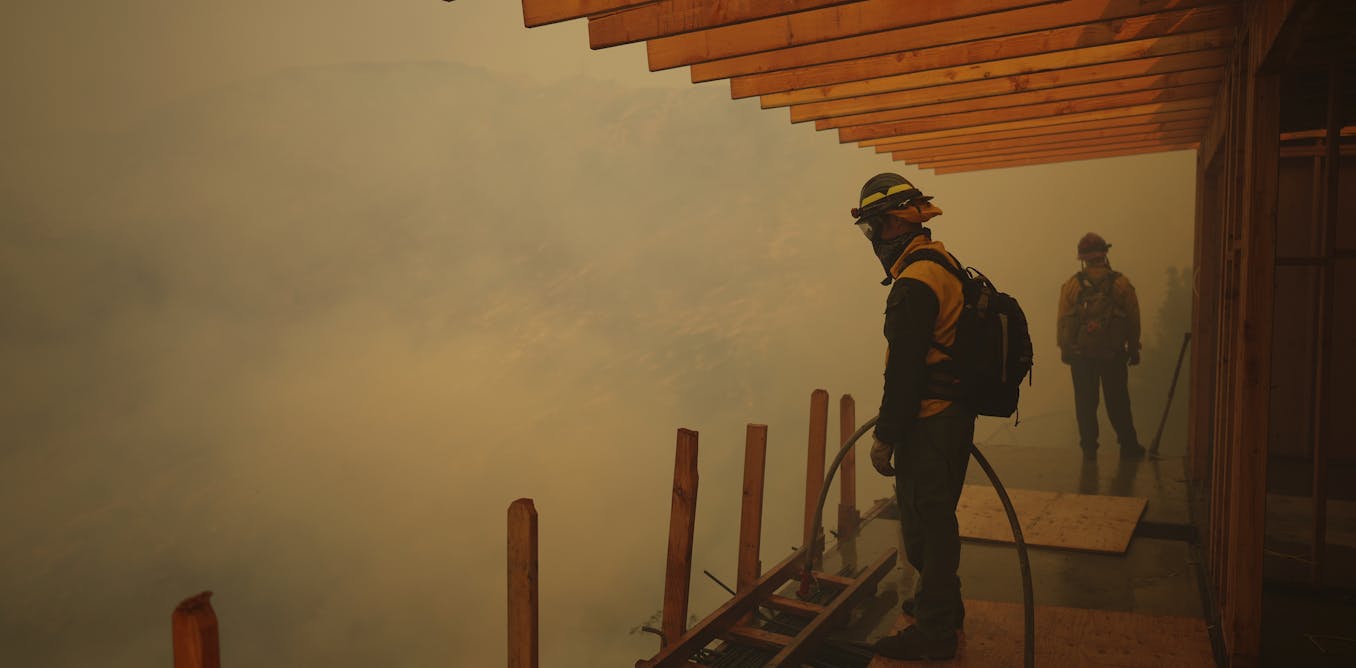






















Leave a Reply